Onalaska business sees increased interest in solar energy
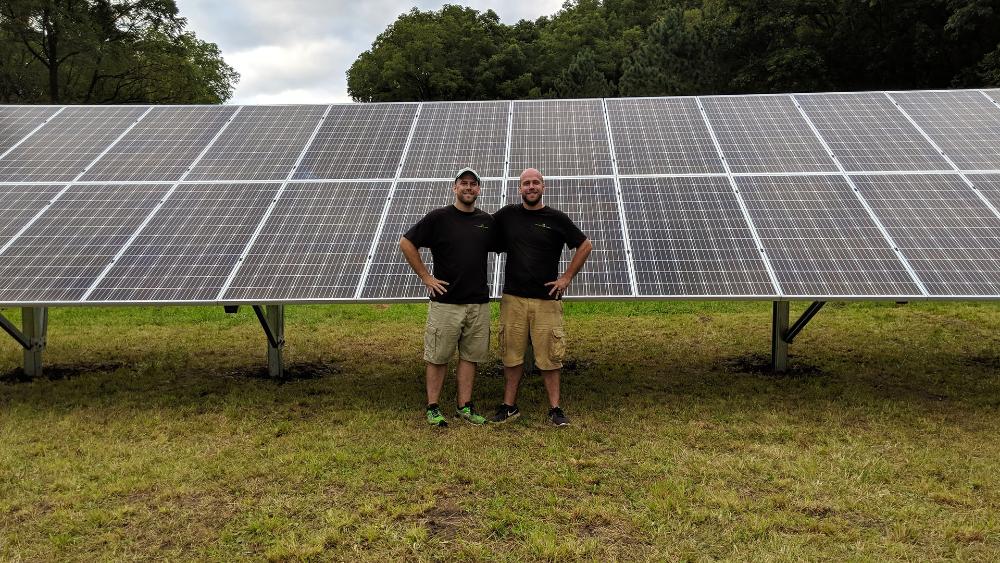
Despite the recent cold snap and limited hours of winter sunshine, interest in solar energy is shining bright in southwest Wisconsin.
Since Olson Solar Energy’s start in 2017, the company has placed systems across diverse landscapes from farms to residential homes to help individuals generate energy.
“It has been a wild year,” Cameron Olson said. “COVID-19 left a lot of questions for people about energy independence and energy security. There’s been a lot of interest in solar.”
Working with a diverse landscape, Olson Solar Energy designs individual systems that would work for each situation from roof mounts to ground mounts, and found success in different terrains.
Olson said he commonly hears questions asking if solar actually works as a renewable energy source.
“Just yesterday, I had a customer Facebook message us that he got money back on his electric bill because the solar system actually overproduced what he needed for the entire year of 2020,” Olson said. “It is real. When you look at that carbon footprint, we all use energy. This is a way of being able to do my part because my energy consumption is at least offset by a renewable energy source. It’s a pretty good feeling.”
Return on investment for panels depends on the system and size, but typical residential customers see payback within 10 years. The large commercial or farm systems usually see profit in seven years.
Olson Solar Energy offers different systems. A grid-tied system uses power grid energy. Any extra energy produced by the panels is sold back to electric companies, but if the grid loses power, then the home also loses power.
“As a safety regulation, if the energy company personnel are working on the power line, we obviously don’t want a solar system putting power back into those power lines and hurting someone,” Olson explained. “We have quite a few different safety procedures that make sure the power does not go back in.”
An off-the-grid system stores solar energy in batteries for future use, so power will stay on if the grid fails, but the extra energy created is lost. A hybrid system has both battery options and connects to the grid.
“We’ve had an increasing amount of people interested in a hybrid battery system where they actually have a Lithium power battery that goes into their home as they are producing during the day, but then it fills up that battery at night,” Olson said. “The batteries are smart batteries that will automatically turn on when the power goes out and the solar stops producing energy.”
In a situation where the power goes out, the batteries may not be able to power the entire home, but they could keep essential appliances running.
“We’re happy to be part of the community and doing what we do,” Olson said. “We love talking about solar. It is so much more affordable thank people think, and even than what it was maybe 10 years ago.”
More information about Olson Solar Energy can be found at olsonsolarenergy.com.
–Kaitlyn Riley
Progressive Agriculture Foundation offers lifesaving tips to avoid electrical burns on the farm, ranch, and at home
Hunger Task Force Searching for Farm Hands

The following is a job description/opening courtesy of the Hunger Task Force in Milwaukee. The full application can be found here.
Position Title: FARM HAND (PART-TIME SEASONAL)
Background: Hunger Task Force operates a 208-acre Farm in Franklin, Wisconsin. The Farm is the only urban farm in the state that grows fresh fruits and vegetables for the express purpose of feeding the hungry andhosts a variety of one-of-a-kind programs that benefit our community in many ways. The Farm is home to 173 acres of tillable land, an on-site fish hatchery, a 43-acre Oak Savanna, and a unique child nutrition education program which includes a quarter-acre school garden.
The Farm Hand Position: The Farm seeks Farm Hands to assist with planting, maintenance and harvesting of vegetable and fruit crops at the Hunger Task Force Farm in Franklin, Wisconsin. This part-time, seasonal position works in the greenhouse, fields and orchards and operates trucks, tractors, other equipment needed to cultivate and plant fields and orchards; irrigate crops, control weeds and harvest produce.
Essential Duties and Responsibilities include the following. Other duties may be assigned.
•Pick, cut, or pull fruits and vegetables to harvest crop
•Propagate, plant and transplant vegetable crops according to plan•Lead and direct work crews in greenhouse, orchards and fields
•Demonstrate and explain farm work techniques and safety regulations to volunteers•Install irrigation systems and irrigates fields.
•Assists in the maintenance of fruit orchard.
Competencies: To perform the job successfully, an individual should demonstrate the following competencies:
Diversity -Demonstrates knowledge of EEO policy; Shows respect and sensitivity for cultural differences; Educates others on the value of diversity; Promotes a harassment-free environment; Builds a diverse workforce.
Ethics -Treats people with respect; Keeps commitments; Inspires the trust of others; Works with integrity and ethically; Upholds organizational values.
Analytical -Synthesizes complex or diverse information; Collects and researches data; Uses intuition and experience to complement data; Designs workflows and procedures.
Problem Solving -Identifies and resolves problems in a timely manner; Gathers and analyzes information skillfully; Develops alternative solutions; Works well in group problem solving situations; Uses reason even when dealing with emotional topics.
Project Management -Develops project plans; Coordinates projects; Communicates changes and progress; Completes projects on time and budget; Manages project team activities.
Technical Skills -Assesses own strengths and weaknesses; Pursues training and development opportunities; Strives to continuously build knowledge and skills; Shares expertise with others.
Interpersonal Skills -Focuses on solving conflict, not blaming; Maintains confidentiality; Listens to others without interrupting; Keeps emotions under control; Remains open to others’ ideas and tries new things.
Oral Communication -Speaks clearly and persuasively in positive or negative situations; Listens and gets clarification; Responds well to questions; Demonstrates group presentation skills; Participates in meetings.
Written Communication -Writes clearly and informatively; Edits work for spelling and grammar; Varies writing style to meet needs; Presents numerical data effectively; Able to read and interpret written information.
Teamwork -Balances team and individual responsibilities; Exhibits objectivity and openness to others’ views; Gives and welcomes feedback; Contributes to building a positive team spirit; Puts success of team above own interests; Able to build morale and group commitments to goals and objectives; Supports everyone’s efforts to succeed.
Strategic Thinking -Develops strategies to achieve organizational goals; Understands organization’s strengths & weaknesses; Analyzes market and competition; Identifies external threats and opportunities; Adapts strategy to changing conditions.
Change Management -Develops workable implementation plans; Communicates changes effectively; Builds commitment and overcomes resistance; Prepares and supports those affected by change; Monitors transition and evaluates results.
Leadership -Exhibits confidence in self and others; Inspires and motivates others to perform well; effectively influences actions and opinions of others; Accepts feedback from others; Gives appropriate recognition to others.
Visionary Leadership -Displays passion and optimism; Inspires respect and trust; Mobilizes others to fulfill the vision; Provides vision and inspiration to peers and subordinates.
Quality Management -Looks for ways to improve and promote quality; Demonstrates accuracy and thoroughness.
Planning/Organizing -Prioritizes and plans work activities; Uses time efficiently; Plans for additional resources; Sets goals and objectives; Organizes or schedules other people and their tasks; Develops realistic action plans.
Professionalism -Approaches others in a tactful manner; Reacts well under pressure; Treats others with respect and consideration regardless of their status or position; Accepts responsibility for own actions; Follows through on commitments.
Qualifications: To perform this job successfully, an individual must be able to perform each essential duty satisfactorily. The requirements listed below are representative of the knowledge, skill, and/or ability required. Reasonable accommodations may be made to enable individuals with disabilities to perform the essential functions.
Education and/or Experience: High school diploma or general education degree (GED); or one to three months related experience and/or training; or equivalent combination of education and experience.
Language Skills: Ability to read and comprehend simple instructions, short correspondence, and memos.Ability to effectively present information in one-on-one and small group situations to customers, clients, and staff.
Mathematical Skills: Ability to add, subtract, multiply, and divide in all units of measure, using whole numbers, common fractions, and decimals. Ability to compute rate, ratio, and percent and to draw and interpret bar graphs.
Reasoning Ability: Ability to apply common sense understanding to carry out detailed but uninvolved written or oral instructions. Ability to deal with problems involving a few concrete variables in standardized situations.
Physical Demands: The physical demands described here are representative of those that must be met by a Farm Hand to successfully perform the essential functions of this job. Reasonable accommodations may be made to enable individuals with disabilities to perform the essential functions.
While performing the duties of this Job, the Farm Hand is regularly required to use hands to finger, handle, or feel. The Farm Hand is frequently required to stand; walk; reach with hands and arms and talk or hear. The Farm Hand is occasionally required to sit; climb or balance; stoop, kneel, crouch, or crawl and taste or smell. The Farm Hand must frequently lift and/or move up to 50 pounds and occasionally lift and/or move up to 100 pounds. Specific vision abilities required by this job include close vision, distance vision, color vision, peripheral vision, depth perception and ability to adjust focus.
Work Environment: The work environment characteristics described here are representative of those an Farm Hand encounters while performing the essential functions of this job. Reasonable accommodations may be made to enable individuals with disabilities to perform the essential functions.While performing the duties of this Job, the Farm Hand is regularly exposed to moving mechanical parts and outside weather conditions. The Farm Hand is frequently exposed to wet and/or humid conditions; high, precarious places; fumes or airborne particles and vibration.
The Farm Hand is occasionally exposed to toxic or caustic chemicals; extreme cold; extreme heat and risk of electrical shock. The noise level in the work environment is usually loud.Work patterns are seasonally influenced,and work activities are highly dependent on the weather.
Farm Bureau Gears Up for National FFA Week
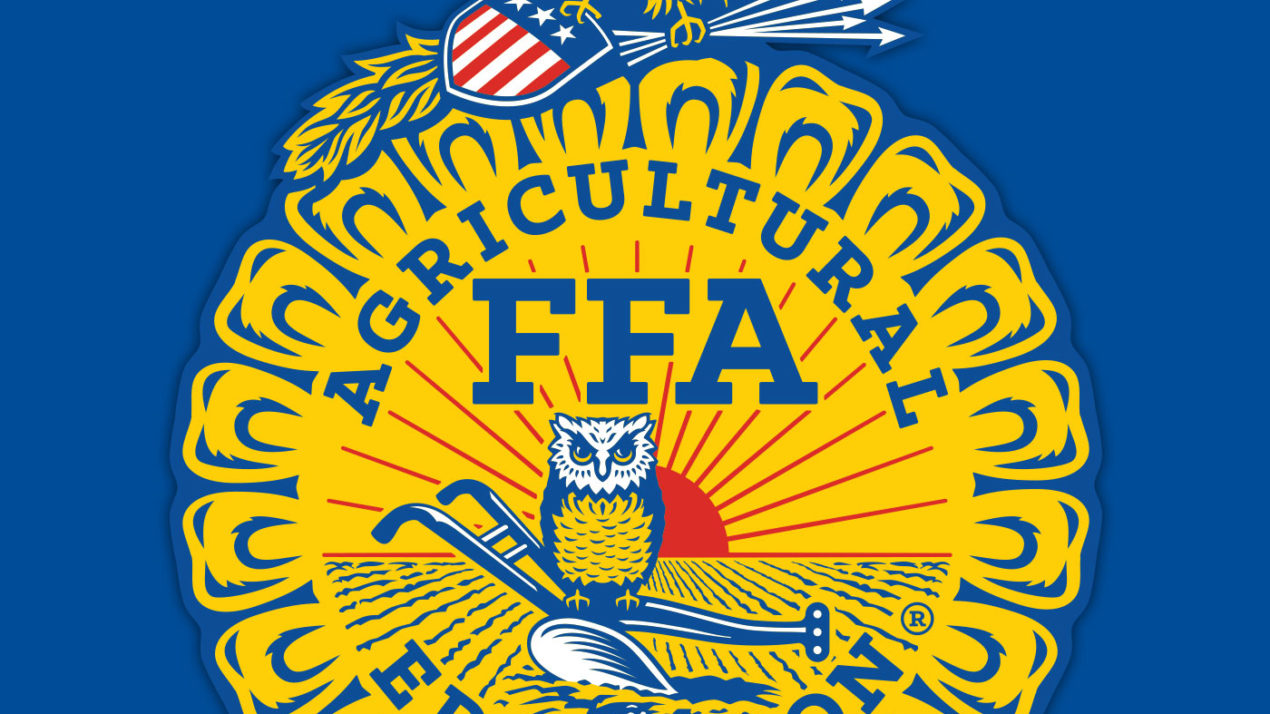
Wisconsin Farm Bureau President Kevin Krentz issued the following statement regarding National FFA Week.
“Wisconsin Farm Bureau Federation is a proud supporter of FFA as an organization that builds agricultural leaders and exposes students to future career opportunities related to food, fuel and fiber.
We also recognize the dedication of agricultural educators and FFA advisors, many of which are Farm Bureau members. Their continued commitment allows FFA members the unique ability to develop their potential for premier leadership, personal growth and career success through agricultural education.
Farm Bureau invests in FFA because we see its members as future farmers, agri-business professionals and leaders for the agricultural industry.”
Chats With Lawmakers Still a Staple of 2021 Ag Day at the Capitol

Wisconsin Farm Bureau Federation’s annual Ag Day at the Capitol is still going full steam ahead, albeit with some adjustments due to the pandemic. Normally, farmers from all around Wisconsin would converge onto Madison for a day, getting up to speed on the latest policy developments and meeting with lawmakers in the State Capitol Building. The entire event will be held virtually this year, but the policy content and chance to chat with decision makers will largely remain the same.
On the day of the event, March 24th, Farm Bureau members will be briefed on legislative issues. Then, “at 11:30 we’re going to ask members to schedule a virtual appointment with their legislator,” says Karen Gefvert, Executive Director of Governmental Relations for Wisconsin Farm Bureau Federation. “When farmers take the time to leave their farm and put their farm in someone else’s hands, come to the Capitol, and advocate for what they need…lawmakers pay attention,” she explains. Gefvert says that even though the pandemic makes it impossible to be face-to-face “it is very impactful to have a group of eight, ten, or twelve farmers taking the time out of their day to talk with their lawmakers about what their challenges are.”
As for what issues Farm Bureau is planning on zeroing in on, that isn’t completely finalized as of yet but Gefvert says they will be taking a lot of cues from Governor Evers’ biennial budget. Those topics include rural broadband access, producer-led watershed grant programs, and strengthening the overall ag economy through exports. Other topics such as Truth in Labeling legislation, which is not included in the budget, will likely be on the table for talks as well.
The registration deadline for this year’s event is March 17th. You can register by clicking the link right here.
Pork Industry Happy to See Federal Support with Covid-19 Vaccination Efforts
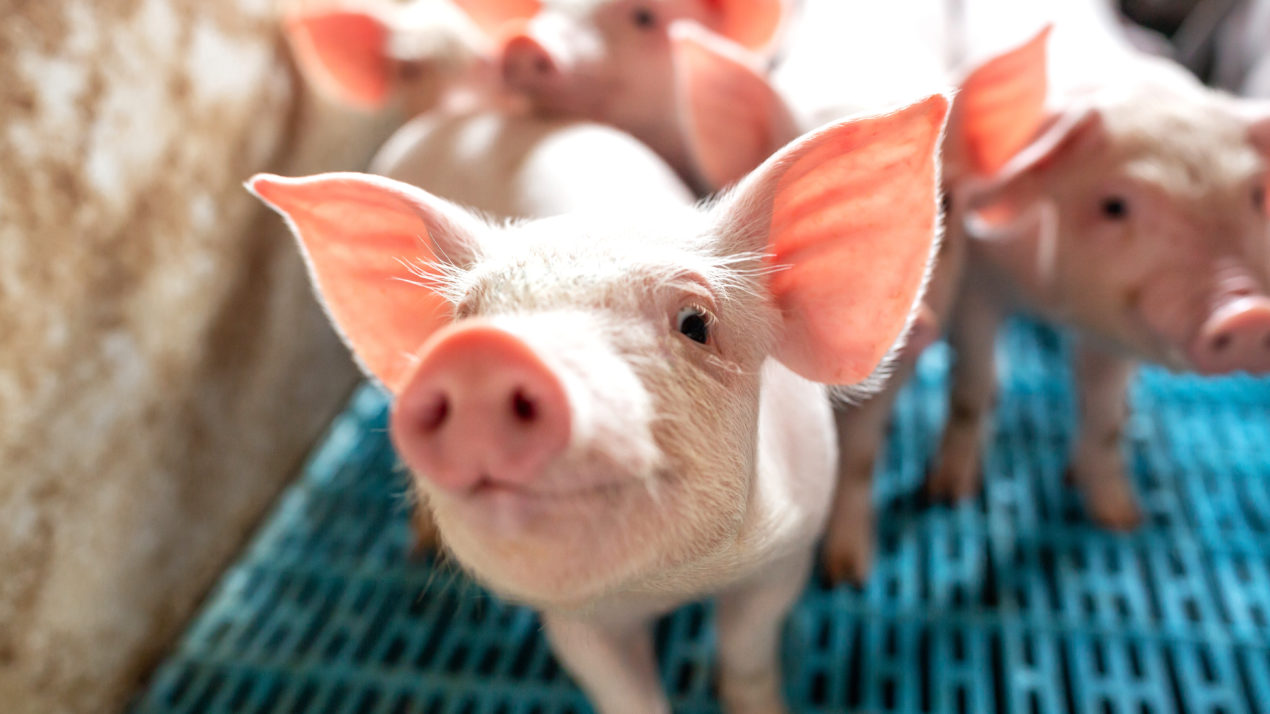
Declared essential by the U.S. Department of Homeland Security at the onset of the COVID pandemic, hog farmers, veterinarians, livestock haulers, harvest facility employees and other workers across the pork supply chain play a vital role in our nation’s food security and rural economies. Yesterday, the U.S. Department of Agriculture announced plans to deploy qualified personnel across several states to assist in the administration of the COVID vaccine. NPPC applauds the USDA for taking this special action. The following statement is attributable to NPPC President Howard “A.V.” Roth, a pork producer from Wauzeka, Wisconsin.
“The U.S. pork industry takes its role as an essential economic sector seriously and has made considerable investments to ensure the safety of its workers while maintaining its commitment to the nation’s food security. Of course, vaccination is the best defense against COVID-19 and we are grateful to the USDA for making personnel available to accelerate this national priority.”
Yesterday, NPPC launched a campaign, “You’re Essential, So It’s Essential,” to encourage U.S. pork industry workers to get vaccinated as soon as possible. For more information, visit https://nppc.org/essential/.
Century and Sesquicentennial Farm Award Application Deadline Nearing
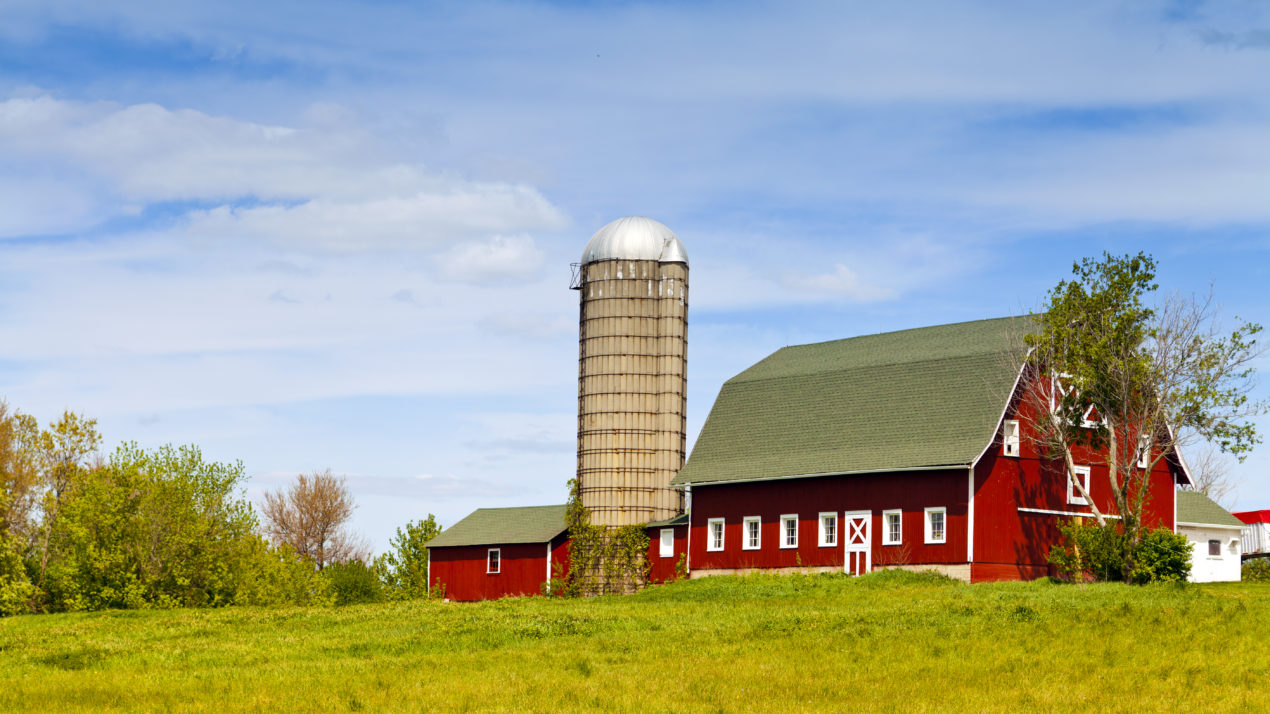
There’s not much time left to submit applications for the 2021 Century and Sesquicentennial Farm and Home Award, a prestigious award given to families who have dedicated their life to Wisconsin farming for 100 or 150 years. The 2021 Wisconsin State Fair, presented by UScellular, will take place Thursday, August 5 through Sunday, August 15 at Wisconsin State Fair Park in West Allis.
To qualify for the award, families are required to provide proof of continuous family ownership of a property in the state of Wisconsin for either the last 100 or 150 years. All property owners will be honored at a special Century and Sesquicentennial Farm and Home Award Program.
Applications for the Century and Sesquicentennial Farm and Home Award are available now and must be postmarked by the application deadline, Monday, March 1, 2021. Applications are not available online and only one certificate may be issued per property.
To request a copy of either application, contact Jill Albanese, Director of Competitive Exhibits via phone at 414-777-0580, via email at [email protected] or write to:
Century or Sesquicentennial Farm & Home Program: 640 S. 84th Street, West Allis, WI 53214.
Goats Help Put the “Dairy” in “America’s Dairyland”
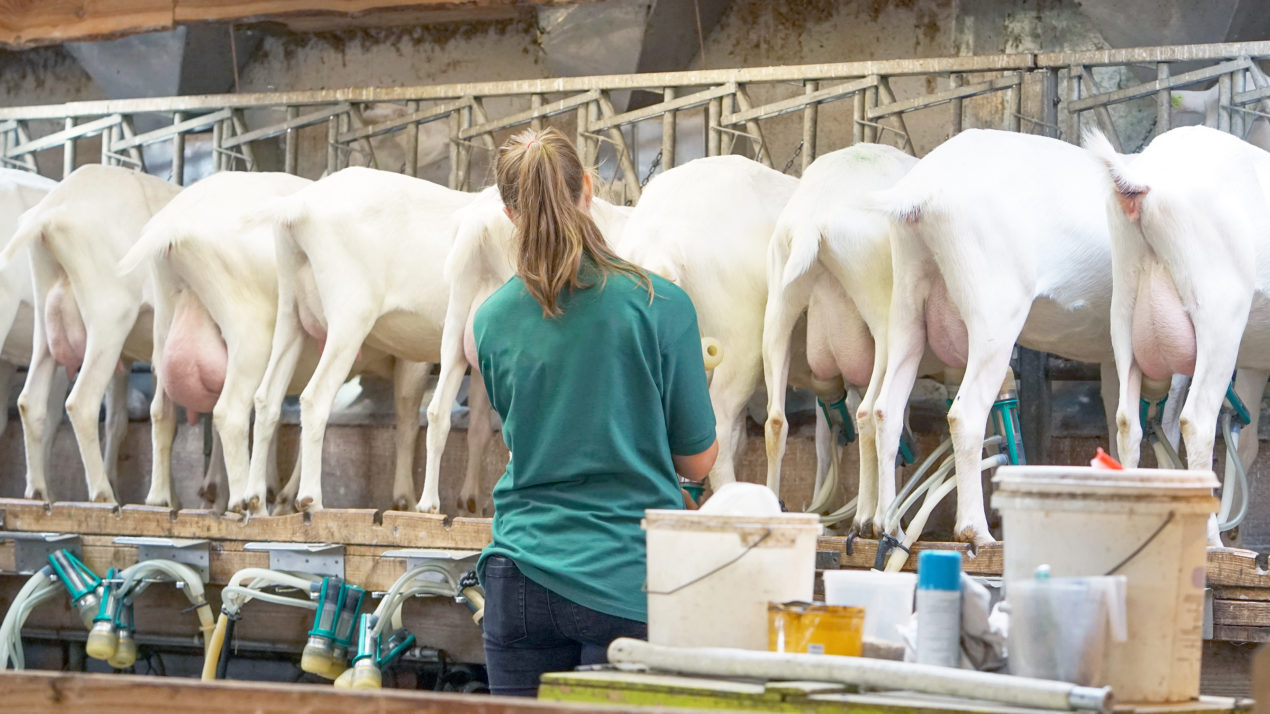
Wisconsin is once again the leading dairy goat state in the entire country, with roughly 72,000 head within its borders. Wisconsin is famously known as “America’s Dairyland” but it’s no longer just because of cows. The dairy goat industry here in The Badger State has been gaining some serious steam over the past couple of decades, says Randy Adamson. As a goat farmer in Rock County and the President of the Wisconsin Dairy Goat Association, Adamson has seen the rapid growth firsthand.
“The consumer side of it is growing every year….but it’s just gotten to be serious,” he explains. Adamson says twenty years ago goats were viewed as more of a hobby and were largely ignored by much of agribusiness as a niche. Now, he sees a drastic change for the better. “The difference is seen in feed designated just for and designed just for goats…there’s milk replacer just for goats….there’s a lot of companies out there that have a product just for goat production.” That’s the true sign of strides made, he says.
The consumer market has also continued to expand as the years go on. “The product has gotten a lot more popular,” Adamson states. He says that roughly 99% of the goat milk in Wisconsin goes towards cheese. But there’s other products such as goat fudge and goat milk soaps that are gaining popularity. “Even this past year with COVID, the market has stayed very strong and our prices have stayed very strong.”
He encourages anyone that has not given goat milk or cheese a chance to give it a try. “You hardly ever heard of goat cheese ten years ago,” and now it can be seen in high-end eateries, on cooking shows, and in grocery stores. Adamson says that if you’ve consumed goat cheese and didn’t like it, give another cheese a try and don’t disavow all cheeses. “There’s cow cheese out there that I’m not a fan of either but there’s cow cheese out there that I absolutely love.”
For anyone interested in getting into the Wisconsin dairy goat industry, visit the Association’s website for more information. According to Adamson, the best way to gain knowledge when wading into the industry is to contact current goat farmers. “Your best bet as far as learning is to learn from someone who is in the business now.”
Ice Shanty Removal Dates Approaching

The Wisconsin Department of Natural Resources (DNR) reminds anglers that ice shanty removal deadlines are approaching.
Permanent ice shanties, or those not removed daily, must be removed from all state waters by March 15. Early deadlines such as those for inland and boundary waters are:
- Wisconsin – Iowa boundary waters by Feb. 20
- Wisconsin – Minnesota boundary waters by March 1
- Inland waters south of Highway 64 by the first Sunday following March 1
- Lake Michigan, Green Bay, Lake Superior and inland waters north of Highway 64 by the first Sunday following March 12
- Wisconsin – Michigan boundary waters by March 15
Anglers can continue to use portable ice shanties after these dates, so long as they are removed from the ice when they are not actively in use and at the end of each day.
As these deadlines approach, it’s important to remember that no ice is ever 100% safe. The DNR does not monitor ice conditions, so anglers should check with local fishing clubs and bait shops for current ice conditions.
Owners having difficulties removing their shanty should seek help from their local fishing club, vendors and other anglers.
The public should report any shanty owners not taking responsibility for removing their shanty to the DNR Violation Hotline by calling or texting 1-800-TIP-WNDR or 1-800-847-9367.
Extension’s Badger Crop Connect begins it’s 2021 season in March
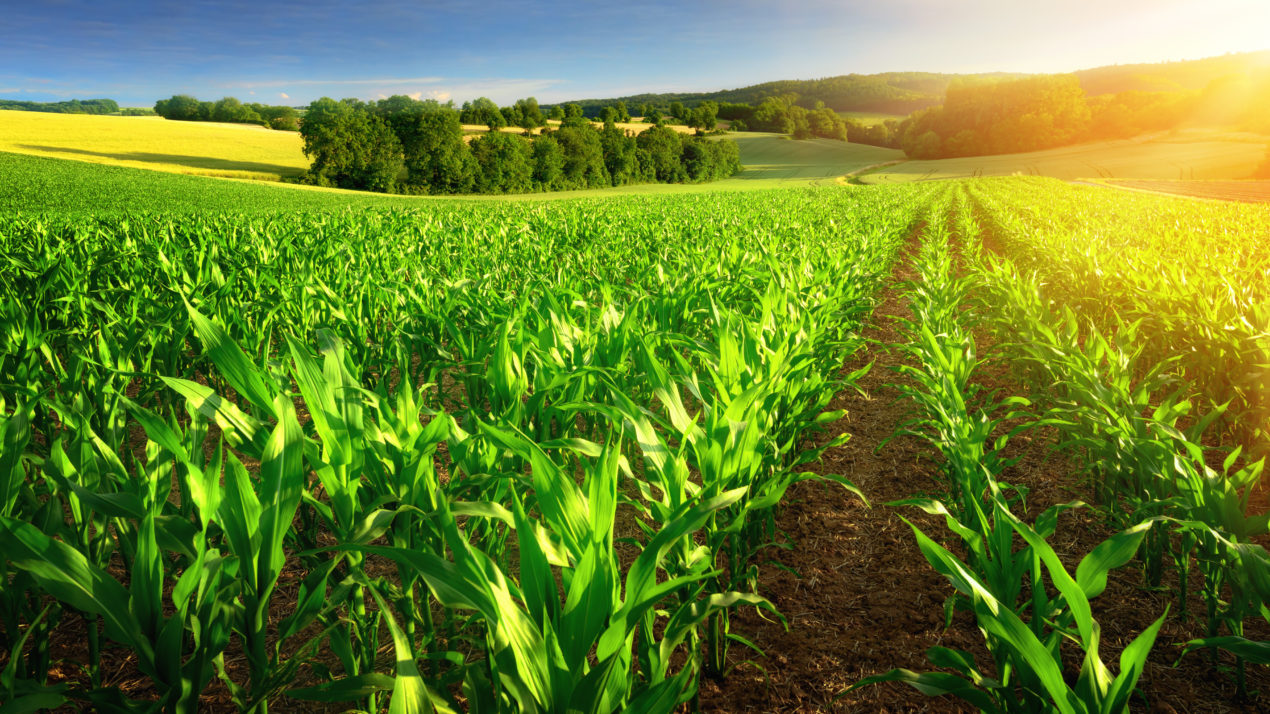
The University of Wisconsin-Madison Division of Extension’s Badger Crop Connect will be starting its 2nd annual webinar series for the 2021 growing season. The series provides agronomists, crop consultants and farmers timely crop updates for Wisconsin. This year’s series will be set up in three parts: spring, summer and fall.
Topics and speakers for the first several webinars include:
- Wednesday, March 10, 2021: Shawn Conley, UW-Madison Professor and Extension Soybean and Small Grains Specialist, will present on evaluating springtime winter wheat stands and intensive winter wheat management; Carrie Laboski, UW-Madison Professor and Extension Soil Specialist, will present on winter wheat nitrogen rates, timing, and tips on winter cereals for improved forage yields
- Wednesday, March 24, 2021, Rodrigo Werle, UW-Madison Professor and Extension Cropping Systems Weed Scientist, will provide considerations for early-Season weed control; Mark Renz, UW-Madison Professor and Extension Weed Scientist, will present on weed control for alfalfa establishment
- Wednesday, April 14, 2021: Francisco Arriaga, UW-Madison Professor and Extension Soil Specialist, will present on determining acceptable field soil conditions; Brian Luck, UW- Madison Professor and Extension Biological Systems Engineering Specialist, will present on planter set-up and operation
The webinars will be offered, on the 2nd and 4th Wednesday’s of the month at 12:30 p.m. from March through September 2021. Badger Crop Connect is hosted by Extension Crops and Soils educators. CCA credits are available for each webinar. There is no fee for these webinars, but registration is required. Please register for all the spring sessions at https://go.wisc.edu/bccspring2021
For more information please visit the Badger Crop Connect webpage at https://fyi.extension.wisc.edu/grain/badger-crop-connection/


